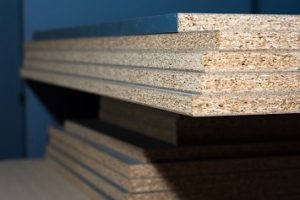In a final rule (September 25, 2017, FR), the EPA has extended the compliance dates for four requirements under the Agency’s final Formaldehyde Emission Standards for Composite Wood Products (December 12, 2016, FR).
The EPA already attempted to issue these extensions in a direct final rule (May 24, 2017, FR)—that is, a rule promulgated without first receiving comments on a proposal. However, because of adverse comments on the extensions, the Agency withdrew the direct final rule and switched to the conventional rulemaking process. The current final rule includes responses to comments on a proposal published simultaneously with the direct final rule.
Title VI of TSCA
The Formaldehyde Emission Standards for Composite Wood Products Act, signed into law July 7, 2010, by President Barack Obama, added Title VI to the Toxic Substances Control Act (TSCA). The law established limits for formaldehyde emissions from composite wood products: hardwood plywood, medium-density fiberboard, and particleboard. The national emissions standards in the law are designed to reduce exposures to formaldehyde, avoid harmful health effects, and mirror standards previously established by the California Air Resources Board (CARB) for products sold, offered for sale, supplied, used, or manufactured for sale in California. Congress tasked the EPA with developing regulations to implement Title VI. With the December 2016 rule, the EPA executed its implementation obligation.
Complex Supply Chain
Following publication of the implementation rule, the Agency received inquiries from industry groups that said the rule was not sensitive to how the domestic and imported composite wood product supply chain worked and that the import certification requirements, noncomplying lot notification requirements, prohibition on early labeling, and laminated product provisions of the final rule were more complex than the EPA had anticipated.
“National groups representing importers and importers themselves have noted that there will be significant logistical hurdles with sourcing compliant composite wood panels for fabrication of finished goods and component parts before the manufactured-by date that the Agency had not considered in choosing the proposed March 22, 2018, compliance date in the direct final rule,” the Agency now states.
One stakeholder told the EPA that achieving full compliance with all of its imported products as TSCA Title VI compliant could take until July 2019, given the anticipated inventory of non-TSCA Title VI certified panels and finished goods currently in their inventory and the time needed to obtain compliant panels to fabricate and sell compliant component parts and finished goods.
CARB-Compliant Products in the Market
Those opposing the extensions said they would delay the health benefits from reduced formaldehyde emissions in the home environment.
The EPA responded that its voluntary early labeling provision (July 11, 2017, FR) would avoid any significant increases in health risks. Moreover, CARB’s compliant composite wood panels, component parts, and finished goods, which are subject to identical formaldehyde emissions standards as TSCA Title VI, make up the majority of composite wood products already in the domestic supply chains, and that will continue during the additional time provided to comply with the TSCA, says the EPA.
Final Extensions
The final extensions are as follows:
- The date for the emissions standards, recordkeeping, and labeling provisions from December 12, 2017, to December 12, 2018;
- The date for import certification provisions from December 12, 2018, to March 22, 2019;
- The date for laminated product producer provisions from December 12, 2023, to March 22, 2024; and
- The conclusion of the transition period for CARB Third-Party Certifiers (TPCs) from December 12, 2018, to March 22, 2019.
The EPA has a package of webinars to assist small businesses in complying with the implementation rule.

